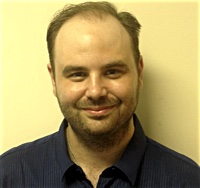Using Behavioral Activation Treatment to Treat Perinatal Mood Disorders
$10.00
Description
 Presenter: Jacqueline Gollan, PhD
Presenter: Jacqueline Gollan, PhD
Overview. The biopsychosocial changes evident during pregnancy and postpartum are associated with an increased risk for depression and treatment requires effective, gender-sensitive psychotherapy practices. Behavioral Activation (BA) treatment has shown to be an effective treatment for perinatal depression. The BA model proposes that depression is generated and maintained via exposure to aversive situations, lost or disrupted routines, and decreased access to positive activities and thus the aims of treatment are to increase access to potential sources of positive reinforcement, recognize routine disruptions and avoidance patterns, and modify skill deficits. Objectives. (1) Describe the BA model of illness and treatment; (2) Summarize common clinical challenges in perinatal depression; (3) Describe specific treatment techniques; (4) Outline how to measure mechanisms of productive therapeutic change, and (5) Guide you on next steps towards achieving competency and adherence in BA. About the Presenter. Dr. Gollan is an Associate Professor in Northwestern University’s Feinberg School of Medicine’s Department of Psychiatry and Behavioral Sciences in Chicago, IL. She obtained her Ph.D. in Clinical Psychology at The University of Washington in Seattle in 1999, conducted her clinical internship at Brown University Medical School in Providence Rhode Island in 2000, and finished her postdoctoral training at Massachusetts General Hospital in Boston MA in 2001. From 2001-2006, she worked as a clinical scholar at the Clinical Psychopharmacology and Neuroscience Research Unit in the Department of Psychiatry at The University of Chicago. Since 2006, Dr. Gollan has worked as a faculty member at Northwestern University Feinberg School of Medicine in the Psychiatry Department. She is an Illinois licensed clinical psychologist and directs The Affective Science and Treatment lab. This lab is focused on identifying novel bio-behavioral mechanisms of treatment response for depression, tracking change and deficits in emotion and motivation in women in the perinatal phase, and testing predictors and mechanisms of successful response to Behavioral Activation treatment. She has received continuous funding from federal and foundation sources since 2001.





Reviews
There are no reviews yet.